We’ve always been fascinated by Monaco. This tiny country, squeezed between France and the Mediterranean Sea, is known for luxury, casinos, and Formula 1 racing. But when we started wondering what language do they speak in Monaco, we, What Do They, discovered something interesting. The answer isn’t as straightforward as you might think.
Monaco is one of the smallest countries in the world, yet it has a rich linguistic landscape. French dominates everyday life, but that’s not the whole story. The country’s unique position and diverse population create a multilingual environment that reflects its history and modern identity.
At What Do They, we explore these linguistic questions to help you understand different cultures better. In this blog, What Do They will walk you through the languages spoken in Monaco, why French became dominant, and what makes this small principality linguistically unique.
French: The Official Language of Monaco
French is the official language of Monaco. If you visit Monaco, you’ll hear French in government offices, schools, shops, and restaurants. It’s the language used for official documents, legal matters, and public signage throughout the principality.
Why French? Monaco’s relationship with France runs deep. The country is surrounded by French territory on three sides. Historically, Monaco has maintained close political and economic ties with its larger neighbor. This proximity made French the natural choice for official communication.
When I researched Monaco’s education system, I found that all public schools teach in French. Children learn to read and write in French from their first day of school. The curriculum follows French educational standards, which reinforces the language’s dominance.
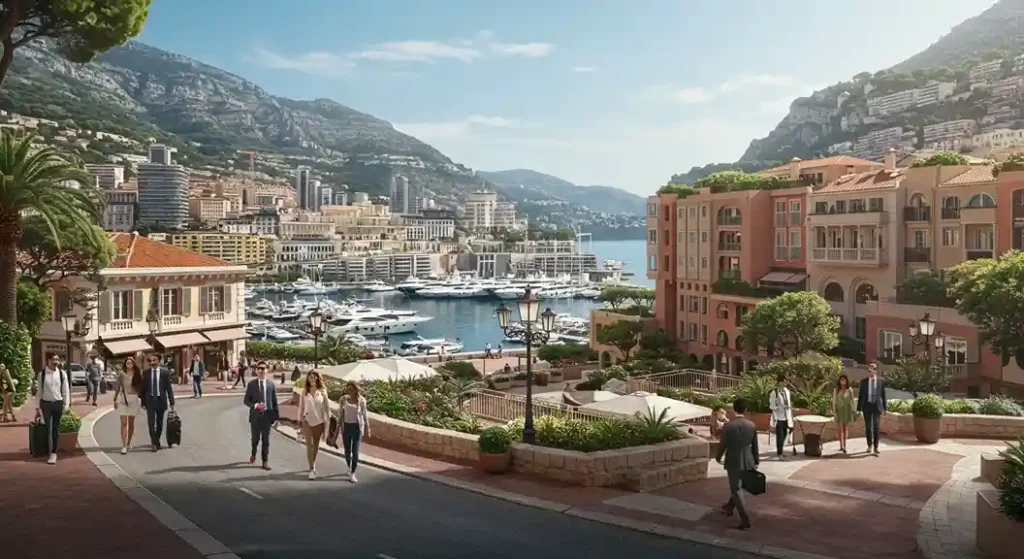
French also serves as the language of business in Monaco. Whether you’re opening a bank account, signing a lease, or attending a business meeting, French is expected. This makes sense given that many Monaco residents work in France or do business with French companies.
The French spoken in Monaco sounds like standard French from France. There’s no distinct Monaco accent that sets it apart. If you speak French, you’ll communicate easily throughout the principality without any language barriers.
Monégasque: The Traditional Native Language
Here’s where things get interesting. What language do they speak in Monaco traditionally? The answer is Monégasque, also called Monegascu. This is the historic language of Monaco’s native population, and it predates French as the local tongue.
Monégasque is a Romance language closely related to Ligurian, spoken in the Italian region of Liguria just east of Monaco. It mixes elements of French and Italian, creating something unique to Monaco. The language developed over centuries as Monaco’s native community evolved.
I listened to some Monégasque recordings, and it sounds like a blend of Italian and French with its own distinct character. To Italian speakers, it might sound like a French-influenced Italian dialect. To French speakers, it has an unmistakably Italian flavor.
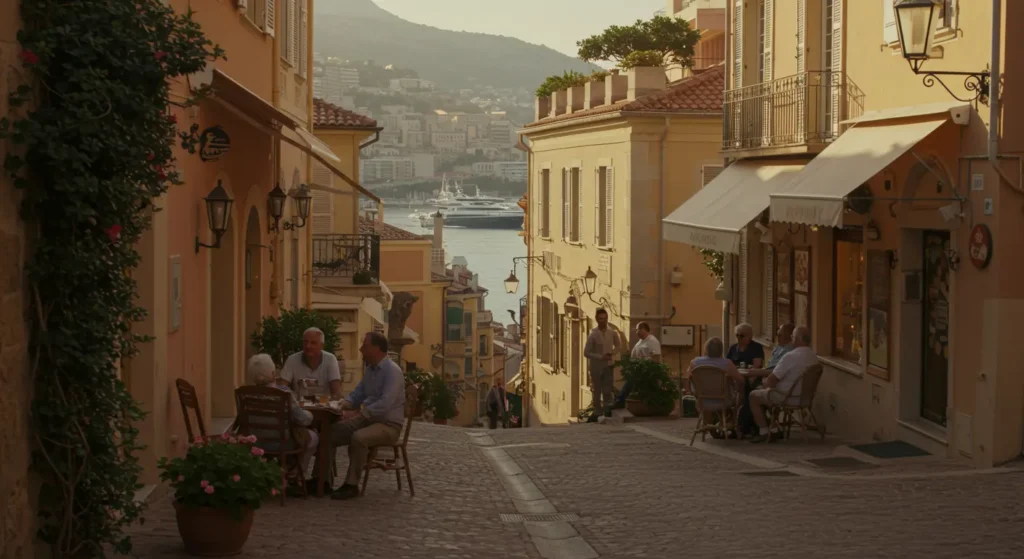
Today, Monégasque is endangered. Only about 5,000 people speak it, mostly older native Monégasque citizens. The language faced decline as French became dominant in education and daily life. Many younger people understand Monégasque but don’t speak it fluently.
Monaco’s government recognizes this problem. They’ve implemented programs to preserve Monégasque. Schools now offer optional Monégasque classes. Street signs appear in both French and Monégasque. Cultural organizations promote the language through events and publications.
The language carries cultural significance beyond communication. It represents Monaco’s identity as a distinct nation, not just a French city. For native Monégasque families, the language connects them to their heritage and ancestors.
Italian: A Widely Spoken Language
Italian plays a major role in Monaco’s linguistic landscape. Given Monaco’s location right next to Italy, this makes perfect sense. The Italian border is just minutes away, and Monaco’s historical ties to Italian city-states run deep.
Many Monaco residents speak Italian as a second or third language. The principality attracts Italian workers, businesses, and tourists. Walking through Monaco, you’ll frequently hear Italian conversations in shops, restaurants, and on the streets.
Monaco’s Italian-speaking population includes both Italian citizens living in Monaco and Monégasques with Italian family connections. Some families have roots in both Monaco and nearby Italian regions like Liguria. They maintain Italian as a household language.
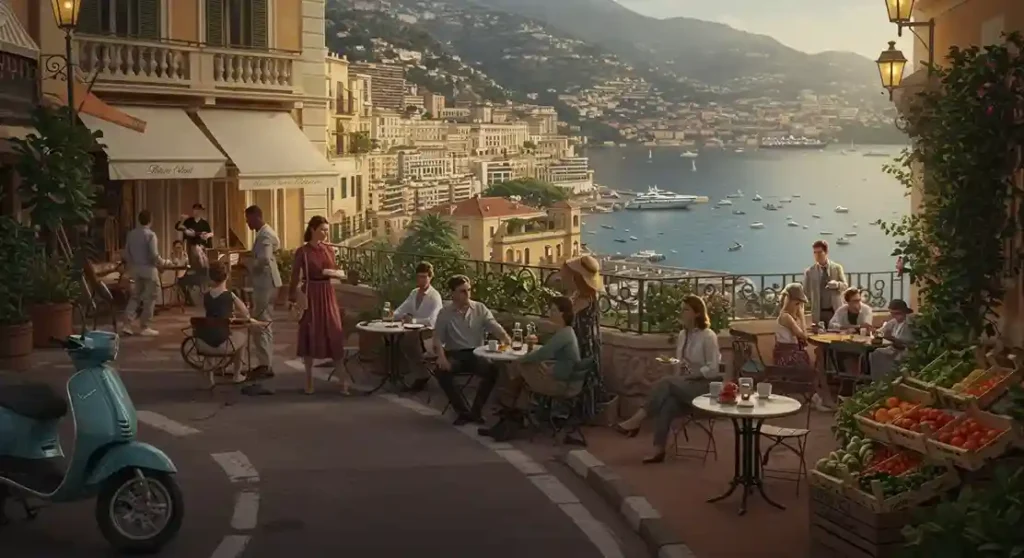
Italian television and radio are popular in Monaco. Many residents watch Italian news and entertainment programs. This keeps Italian language skills sharp and maintains cultural connections to Italy. I think this trilingual environment—French, Monégasque, and Italian—creates a unique Mediterranean cultural blend.
Businesses in Monaco often require Italian language skills. Hotels, retail shops, and restaurants serve many Italian clients. Being able to communicate in Italian provides a professional advantage and better customer service.
English: The Language of International Business
Monaco is an international hub. The principality attracts wealthy residents, business people, and tourists from around the world. This global character makes English increasingly important, even though it’s not an official language.
What language do they speak in Monaco in business contexts? Increasingly, it’s English. Many international companies have offices in Monaco. Banking, finance, and luxury goods industries operate in English alongside French. Business meetings often switch to English when international participants are involved.
Monaco’s international schools teach in English. These schools serve expatriate families from Britain, America, and other English-speaking countries. They follow British or American curricula, providing English-language education from kindergarten through high school.
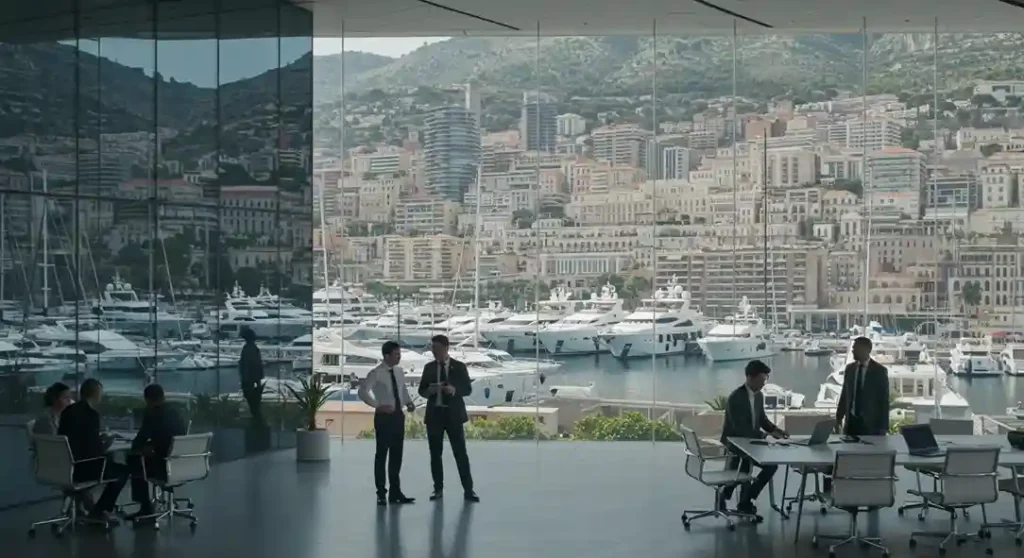
In tourist areas like Monte Carlo Casino or the harbor filled with yachts, English is widely understood. Hotel staff, restaurant servers, and shop employees typically speak English fluently. This makes Monaco accessible to English-speaking visitors who don’t know French.
I noticed that Monaco’s official websites and government information are available in English. This shows recognition of English as a lingua franca for international communication. The principality wants to remain welcoming and accessible to the global community.
Young people in Monaco often speak excellent English. They learn it in school and through exposure to English media, music, and online content. This generation grows up truly multilingual, comfortable switching between French, English, and often Italian or other languages.
Other Languages Spoken in Monaco
Monaco’s population is incredibly diverse. Only about 22% of residents are native Monégasques. The rest come from over 100 countries. This diversity brings dozens of languages to this small territory.
Portuguese and Spanish
Significant Portuguese and Spanish-speaking communities live in Monaco. Many work in service industries, hospitality, and construction. These communities maintain their languages through social networks, cultural associations, and home use.
Russian
Monaco attracts wealthy Russian residents and investors. Russian is heard in luxury shops, real estate offices, and upscale restaurants. Some businesses employ Russian-speaking staff to serve this clientele effectively.
Arabic
Arabic speakers from North Africa and the Middle East form another linguistic community. Some work in Monaco, while others visit frequently for business or leisure. Arabic adds to Monaco’s linguistic diversity, though it’s less commonly heard than French, Italian, or English.
Germanic Languages
German, Dutch, and Scandinavian languages appear among Monaco’s international community. Northern European residents and tourists bring these languages, particularly in business and tourism sectors.
This multilingual reality makes Monaco unique. Unlike many countries where one or two languages dominate completely, Monaco functions as a true linguistic crossroads. Similar to how different regions have distinct linguistic landscapes—like what language they speak in Iceland with Icelandic, or the multilingual environment of Pakistan—Monaco has its own special character.
Why Monaco Speaks Multiple Languages
The multilingual nature of Monaco stems from several factors. Let me break down why this tiny country embraces so many languages instead of just one.
Geography and History
Monaco’s location created natural multilingualism. Surrounded by France and neighboring Italy, the principality absorbed influences from both. Historical connections to Italian city-states and later protection by France shaped its linguistic development.
The Grimaldi family, Monaco’s ruling dynasty since 1297, maintained relationships with both French and Italian powers. This diplomatic balancing act required linguistic flexibility. Speaking multiple languages wasn’t optional—it was necessary for survival.
Economic Model
Monaco built its economy on attracting international wealth. The principality offers tax advantages, security, and luxury living. To serve a global clientele, Monaco needed linguistic openness. Speaking only French would limit business opportunities.
Banking, real estate, and luxury retail all depend on serving international clients. These clients speak English, Russian, Arabic, Chinese, and many other languages. Monaco adapted its linguistic environment to accommodate this reality.
Small Population
With fewer than 40,000 residents, Monaco lacks the population mass to maintain pure linguistic isolation. Small countries often become more multilingual than large ones. They must engage with the outside world more directly.
Compare this to larger countries that can maintain linguistic homogeneity more easily. Monaco’s size makes it permeable to outside influences, including languages.
Cultural Openness
Monaco’s culture values international sophistication. Being multilingual is seen as cultured and worldly. This attitude encourages language learning and linguistic diversity. Unlike some places that resist foreign languages, Monaco embraces them.
I think this openness reflects Monaco’s identity as a global meeting place rather than an insular nation. The principality succeeds by being welcoming and accessible to people from everywhere.
Language Education in Monaco
Education reveals a lot about what language do they speak in Monaco and what languages they value. The school system reflects the principality’s linguistic priorities and prepares students for a multilingual future.
Public schools in Monaco teach primarily in French. This ensures all students master the official language regardless of their background. Core subjects like mathematics, science, and history are taught in French following the French national curriculum.
However, language education extends beyond French. English becomes mandatory in elementary school. Students start learning English early, building fluency through years of study. By high school, students can communicate effectively in English for academic and professional purposes.
Italian is also widely taught. Given Monaco’s location and Italian connections, many students choose Italian as a second or third foreign language. Some schools offer Spanish and German as well, giving students options based on their interests.
International schools provide alternatives to the French system. The International School of Monaco teaches in English, serving expatriate families. Other private schools offer curricula in various languages, maintaining linguistic diversity in education.
Monégasque language classes exist but remain optional. The government promotes these classes to preserve the native language. Young students learn basic Monégasque vocabulary and phrases, connecting them to Monaco’s heritage. While few become fluent, this exposure keeps the language alive.
Universities and higher education in Monaco often involve French, English, or both. The International University of Monaco teaches many programs in English, attracting international students and preparing graduates for global careers.
Navigating Monaco as a Visitor
If you’re planning to visit Monaco, you might wonder what languages you’ll need. The good news is that Monaco is very accessible to visitors regardless of what language you speak.
French will serve you best. If you speak French, you’ll navigate Monaco easily. All official interactions, most business dealings, and everyday conversations happen in French. Learning basic French phrases will enhance your experience significantly.
English works well in tourist areas. Hotels, major restaurants, attractions, and shops in Monte Carlo typically have English-speaking staff. You can get by with English alone, though you’ll miss some authenticity and local interaction.
Italian helps in many situations. If you speak Italian, many Monaco residents will understand you, even if they respond in French. The linguistic similarity between Italian and French also makes basic communication easier even with limited skills in either language.
Don’t worry if you speak none of these languages. Monaco’s tourism infrastructure accommodates international visitors. Tourist information is available in multiple languages. Many people working in hospitality speak several languages and will find a way to help you.
I recommend learning a few French basics before visiting. Simple phrases like “bonjour” (hello), “merci” (thank you), and “excusez-moi” (excuse me) show respect and open doors. Monaco residents appreciate visitors who make an effort, even if your French is limited.
The Future of Languages in Monaco
What language do they speak in Monaco in the future? This question interests me because Monaco’s linguistic landscape continues evolving. Several trends are shaping how languages develop in the principality.
English is clearly growing in importance. As Monaco attracts more international residents and businesses, English becomes increasingly necessary. Young people see English as essential for careers in finance, technology, and international business. This trend seems likely to continue.
Monégasque preservation efforts show mixed results. While government support helps, the language struggles against French dominance. Unless significant changes occur, Monégasque will likely remain a heritage language rather than a widely spoken one. I hope preservation efforts succeed, but reviving endangered languages is challenging.
French will certainly remain Monaco’s official and primary language. The close relationship with France, educational system, and established infrastructure all reinforce French. No signs suggest this will change in the foreseeable future.
Other languages will continue reflecting Monaco’s international population. As different nationalities arrive and depart, new languages appear while others fade. This fluidity characterizes Monaco’s linguistic character.
Technology also influences language use. Translation apps make language barriers less problematic. This might reduce pressure to learn multiple languages, though personal interaction still benefits from shared languages.
Monaco’s linguistic diversity mirrors its broader identity as a global crossroads. Just as different communities maintain unique linguistic traditions—like Jewish communities speaking various languages depending on their location—Monaco will continue balancing local heritage with international openness.
Do You Know Now?
So, what language do they speak in Monaco? Officially, it’s French. But the real answer is more complex and interesting. Monaco speaks French in daily life, preserves Monégasque as its heritage language, uses Italian extensively due to geography, and increasingly relies on English for international business.
This linguistic diversity reflects Monaco’s unique character. As one of the world’s smallest countries with one of the most international populations, Monaco must be linguistically flexible. The principality succeeds by embracing multiple languages rather than insisting on just one.
Understanding Monaco’s languages helps us appreciate its culture. Language choices reveal history, values, and practical needs. Monaco chose openness over isolation, international connection over linguistic purity. This approach has served the principality well, making it a thriving global hub despite its tiny size.
Whether you visit Monaco or simply want to understand this fascinating place better, knowing about its languages provides valuable insight. Monaco proves that small size doesn’t mean limited perspectives—sometimes the smallest places contain the greatest diversity.

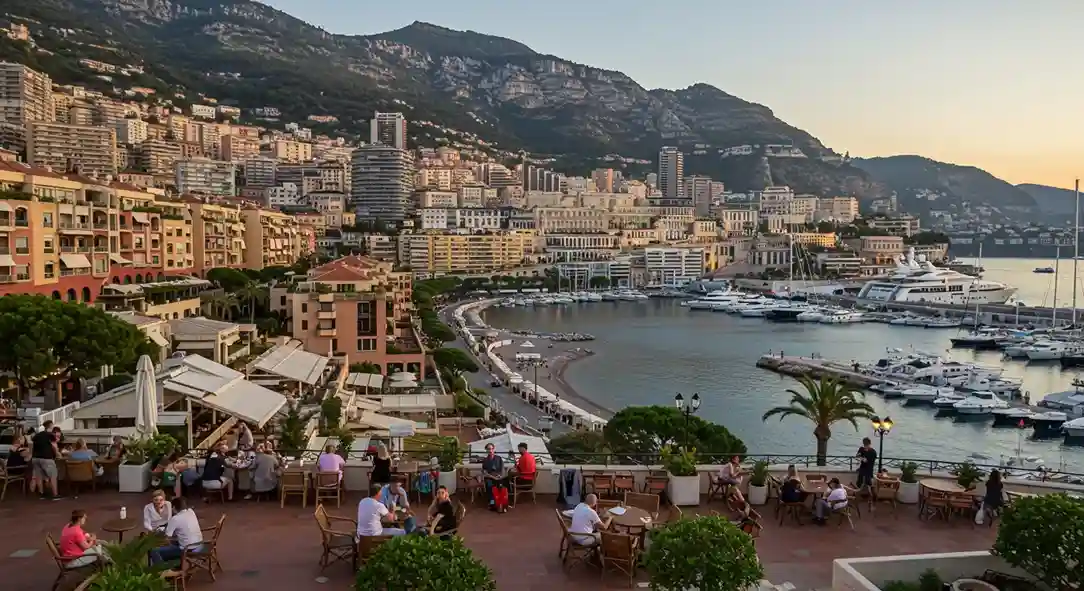
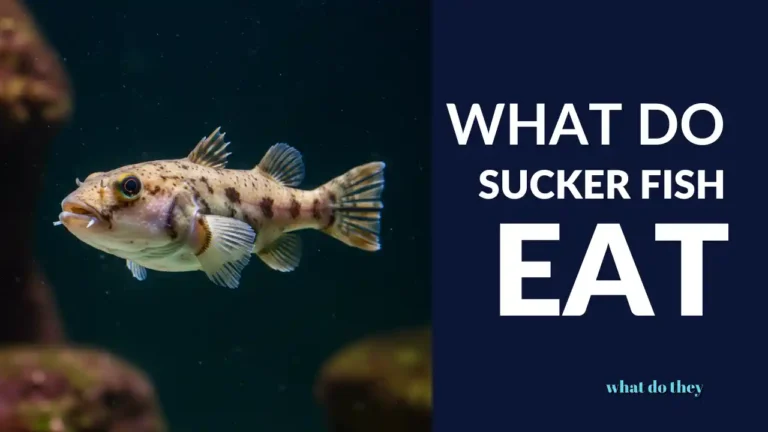



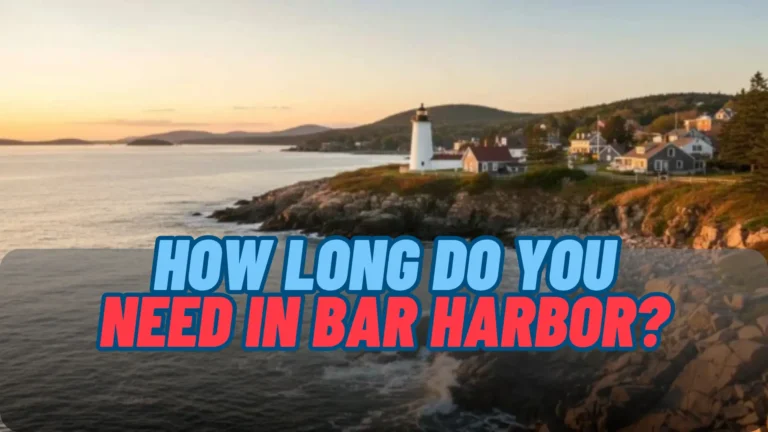

Leave a Comment